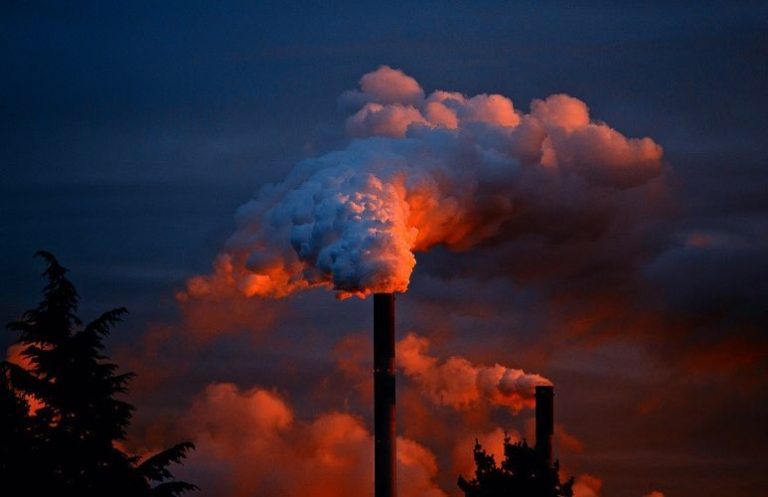Why Is Renewable Energy Morally Right?
The issue of climate change is one of the most pressing challenges facing the world today. As governments, businesses and individuals grapple with how to respond, the transition to renewable energy sources has emerged as a critical priority. Renewable energy, derived from inexhaustible sources like the sun, wind and water, offers a pathway to dramatically reduce the greenhouse gas emissions that are driving climate change and its severe impacts.
But this transition involves more than just practical and economic considerations. At its core, choosing renewables over fossil fuels is fundamentally an ethical choice and a moral obligation. Given the immense threat that climate change poses to public health, communities, and future generations, moving rapidly towards renewable energy is simply the right thing to do.
The science is clear
There is an overwhelming scientific consensus that climate change is real, is caused by human activity, and poses a serious threat if left unaddressed. Over 97% of climate scientists agree that humans are causing climate change through activities like burning fossil fuels. This consensus is affirmed by numerous reputable scientific organizations including NASA, the National Academy of Sciences, the Intergovernmental Panel on Climate Change (IPCC), and many more. The IPCC in particular, the leading international scientific body on climate, has definitively concluded in its assessment reports that human influence has warmed the atmosphere, ocean and land, leading to widespread and rapid changes in the climate. The science confirming human-caused climate change through greenhouse gas emissions is robust, well-established, and leaves little room for reasonable doubt.
A moral obligation
All humans have a duty to protect the planet and future generations. The current climate crisis and environmental degradation challenge our moral conscience. Fossil fuels harm health and the environment when extracted and burned, posing risks to vulnerable communities. Renewable energy offers a chance to make amends and preserve a livable world. We must consider the global impacts of our energy choices and opt for clean sources out of an obligation to do what is right. This moral imperative transcends borders, politics, and ideologies. Our shared humanity and moral compass point towards renewable energy as the just path forward.
Public health impacts
The burning of fossil fuels such as coal, oil, and natural gas releases enormous amounts of air pollution, including fine particulate matter, nitrogen oxides, sulfur dioxide, mercury, and dozens of other toxins into the atmosphere. Numerous studies have linked this air pollution to various respiratory and cardiovascular diseases.
According to the WHO, air pollution causes over 4 million premature deaths worldwide every year. In particular, fine particulate matter has been shown to penetrate deep into the lungs and enter the bloodstream, causing inflammation, accelerated atherosclerosis, and increased risk of respiratory infections, lung cancer, and ischemic heart disease. Children, the elderly, and those with pre-existing conditions are especially vulnerable.
By contrast, renewable energy sources like solar, wind, and hydropower produce little to no air pollution when generating electricity. Widespread adoption of renewables and phasing out fossil fuel combustion could prevent millions of premature deaths, while improving the respiratory health and life expectancy of millions more.
Environmental justice
The production and use of fossil fuels disproportionately harms marginalized communities. Those with the least sociopolitical power often live and work closest to power plants, refineries, and drilling sites. As a result, they suffer higher rates of illness and premature death from smog, soot, and toxic chemicals. Children in these communities are especially vulnerable. Switching to renewable energy can help correct this imbalance and secure environmental justice for all. Clean energy improves health outcomes while creating jobs that everyone can access. With inclusive policies, the renewable energy transition presents a rare opportunity to unite environmental, economic, and social justice.
Economic opportunities
Transitioning to renewable energy can provide major economic benefits and job creation opportunities. Studies have shown that investments in clean energy create more jobs across the economy than continued reliance on fossil fuels. For example, a 2019 study by the University of Massachusetts found that transitioning the U.S. to 100% renewable electricity by 2035 would create over 550,000 jobs in renewables and nearly 2 million total jobs when indirect employment is considered. Most of these would be high-quality jobs in construction, plant operations and maintenance. Renewable energy also provides new opportunities for skilled workers whose jobs may be displaced from the oil, gas and coal industries. With the right policies and investments, renewable energy can be an engine for equitable economic growth and shared prosperity across society.
Energy Access
Nearly one billion people around the world live without access to electricity. The traditional centralized grid often fails to reach remote and rural areas due to the high costs of infrastructure and distribution. Renewable energy offers a cost-effective solution by enabling distributed and off-grid electricity generation. Small-scale solar, wind, and microgrid projects can provide power to isolated communities and greatly improve quality of life by enabling refrigeration, lighting, communication, and community services. With lower costs than ever before, renewables present a viable path to achieve universal energy access and lift millions out of energy poverty. They allow underserved populations to leapfrog over fossil fuels directly to clean energy. Renewables democratize energy by shifting control into the hands of communities rather than monopolistic utilities. Energy access facilitates education, health care, economic activity and is crucial for human development. The renewable energy transition promises to leave no one behind.
Energy Independence
One of the key benefits of switching to renewable energy is achieving greater energy independence. Most nations today import a significant portion of their energy in the form of coal, oil, and natural gas. This leaves countries dependent on the exporting nations and vulnerable to global price shocks and supply disruptions.
In contrast, renewable energy sources like solar, wind, hydropower, and geothermal can be generated locally. By investing more in renewables, countries can rely less on imported fossil fuels. This reduces the political and economic leverage other countries may try to exert through their energy exports.
Furthermore, money spent on imported coal, oil, and gas leaves the local economy. But renewable energy investments and operations provide jobs and growth domestically. The revenues remain in the local economy rather than being transferred overseas. Therefore, switching to renewable energy enhances a nation’s economic and political independence.
Low cost
Renewable energy sources such as solar and wind have become incredibly cost competitive over the past decade. In most parts of the world, building new renewable energy is now cheaper than continuing to operate existing coal and gas plants. This is an astonishing change from just 10 years ago when fossil fuels were clearly the cheaper option.
Multiple reports show that the costs of renewables have fallen dramatically, with the levelized cost of electricity from utility-scale solar PV dropping 88% between 2009 and 2019. Onshore wind dropped 70% over the same period. In comparison, the cost of coal and gas stayed relatively flat.
Today, building and operating new renewable energy is frequently less expensive than just the ongoing costs of existing fossil fuel infrastructure. A 2021 report found that over 75% of the world’s coal plants currently cost more to run than building new renewable energy. This economic shift makes the transition to renewables highly compelling from a cost perspective.
As renewable energy scales up further, we can expect continued cost declines through economies of scale and technological improvements. The future is clearly renewable – both for moral and economic reasons.
Conclusion
The evidence is clear that transitioning to renewable energy is not just smart policy, but a moral obligation. Climate change threatens the health and wellbeing of people worldwide, with the poor and vulnerable impacted most. Meanwhile, polluting fossil fuels take a toll on public health and the environment, especially in marginalized communities. Renewable energy offers a solution that promotes justice, equity, health, and opportunity for all. Wind, solar and other clean technologies increasingly outcompete fossil fuels on cost while creating economic growth and access to electricity. Energy independence and national security are enhanced when diverse homegrown resources displace imported fuels. Most importantly, renewable energy aligns with shared moral values of environmental stewardship, justice, life preservation and human dignity. The ethical path forward is a renewable energy future for the health of humankind and the planet we all share.





